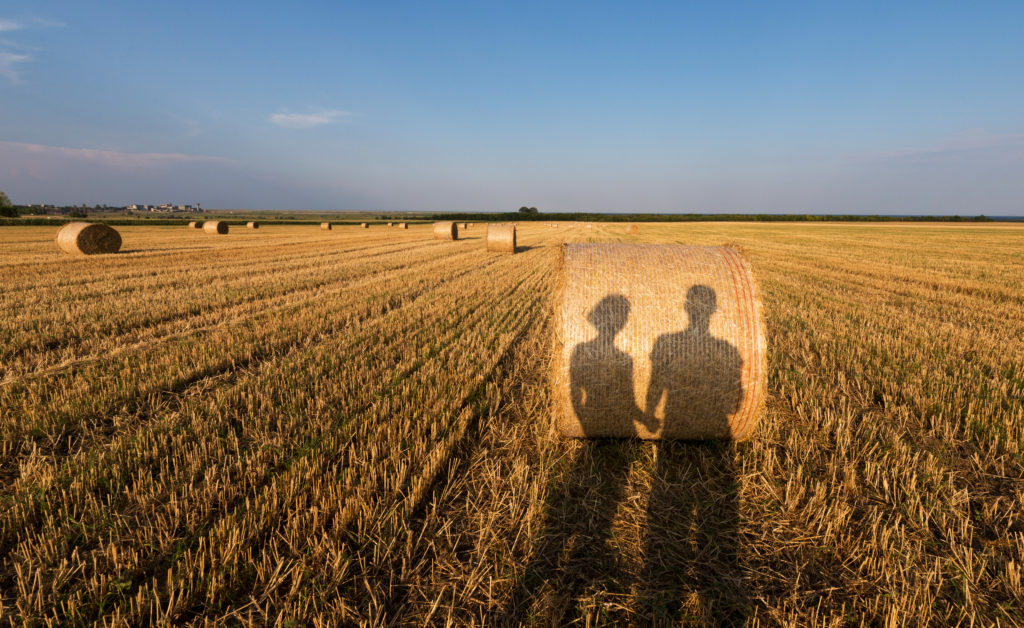
The complexity of farming divorces can make them among the most expensive. Add to that the fact that the impact of divorce on a family farm can be catastrophic. That is why leading family lawyer Sarah Atkinson from Stephens Scown LLP recommends farming families consider pre or post-nuptial agreements to protect their family farms.
Pre or post nuptial agreements are becoming increasingly common to agree upfront as a provision for a spouse in the unwanted event of a divorce. For couples who are already married, post-nuptial agreements provide the same level of reassurance so it doesn’t have to be done before a wedding. These are used effectively by farming families who want to pass ownership of the farm to the next generation after the intended owner has married.
These days, pre nups are not just the preserve of celebrities – hard working farming families are choosing them too, to give them peace of mind.
The reality of entering into a pre or post-nuptial agreement is that the process gives couples and their families clarity over previously unspoken areas of concern and enables them to proceed with succession plans and manage the risk of relationship breakdown. In a farming context, this can mean reaching an understanding over who will retain the family farm and setting out how their spouse will be fairly provided for if they split up, to meet their needs without damaging the farm business.
Although a pre-nup is not currently legally binding in England and Wales, it provides the couple and the Court with a ‘default’ approach to be followed if they eventually go their separate ways. Essentially, if properly entered into it will be followed unless it would be obviously unfair to one party. The Courts could then increase the provision beyond that set out in the prenup, but this is only done to ensure their basic needs are met, not to award a significantly higher share of the assets than might be awarded without a pre-nup in place.
This assessment of what the court might deem fair in the future when the prenup is tested filters down through to the drafting stage. Lawyers experienced at putting pre-nups together will be familiar with what might be regarded as fair and the sorts of mechanisms that can be included to ensure this remains the case, maximising the prospect of it being followed by a divorce court.
What is involved in agreeing a pre or post-nup?
Quite a lot can turn on the approach taken by the solicitors involved. Pre and post nups are always done with the purpose of limiting the assets shared on divorce with a spouse and it is approached with that in mind. The person with the assets to protect prepares the first version of the agreement for their fiancé/spouse to review with their solicitor.
They will plan the drafting process to ensure that each person is given the necessary time and space to properly consider the implications of what’s being proposed. They will make sure that advice is fully explained and that all options are provided for the couple to consider together, to make sure they are on the same page throughout the process.
It is important for the solicitors involved to take a non-confrontational approach, so they do not create tension ahead of the wedding day. They will ensure that only sensible and necessary alterations are requested to the document and not changes being made for the sake of it, focusing on the provision that will be made in various eventualities of separation in the future.
Above all else, they go out of their way to make sure that the experience is a positive one and something that will not compromise the sentiments of the couple going into their wedding day and future lives together.
Pre and post-nuptial agreements are a valuable tool for farming families looking to pass assets on to the next generation but secure the future of the family farm in the event of divorce.
Sarah Atkinson is a partner in the family team at Stephens Scown. This growing team is among the largest in the region and has top tier ranking in Legal 500. Sarah Atkinson is recognised as a notable practitioner by Chambers UK. To contact Sarah, please call 01872 265100 or email solicitors@stephens-scown.co.uk
To sign up to our rural newsletter visit stephens-scown.co.uk/supportsouthwestfarmers
